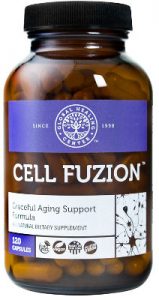Antioxidants. What’s the big deal? The likelihood is you’ve heard of them and consumed a fair number of them in your food and drink over the years, but do you know what they actually are, do you believe they’re as good for you as you’ve been told and – most importantly of all – are they genuinely as good for you as all that?
Antioxidants – what are they are?
Let’s start at the beginning. Antioxidants pop up in many different kinds of foods and beverages. Superfoods – foodstuffs containing plentiful health-giving properties – are rife with them; as are red wine and chocolate, believe it or not. Even some skincare products are sold on the back of the fact their ingredients include antioxidants; not surprising as the clever molecules are said to help slow down the ageing process, as well as potentially help fight illnesses and diseases.
Generally speaking, a broad spectrum of different molecules is covered by the term ‘antioxidants’; they’re basically molecules that, once inside the body, protect other non-antioxidant, but important molecules from the process that’s oxidation.
What’s so crucial about this? Well, left to the damage that oxidation would wreak upon them, these molecules wouldn’t be able to carry out the critical processes they need to in the millions of cells contained in the human body… if it weren’t for the intervention of antioxidants.
Oxidation – the lowdown
Simply put, oxidation is a chemical reaction that sees the tiny, but critical particles that are electrons transferred from one molecule to another – usually the molecule that’s seeking the extra electron is a free radical, a molecule with one or more unpaired electrons, which makes it highly unstable. So, this oxidation process inevitably ensures the structure, performance and efficacy of molecules in the human body, irrevocably change.
Now, it’s fair to say that oxidation isn’t always bad news when it occurs in the body. Indeed, when glucose (food) is oxidised in the body’s cells by oxygen (via air from our lungs), it produces not just carbon dioxide as a side-product but, critically, energy and water; thus, providing all-important fuel for the cells and, in turn, the body.
Still, there’s no question that, too often, the oxidation process can cause great harm in the body’s cells – which is where antioxidants come in. How is it they prove so beneficial when oxidation happens? Because they effectively prevent the process taking place – donating one of their electrons to a chaos-causing free radical, as they do, and stabilising the molecule so it doesn’t ‘steal’ an electron from another all-important but non-antioxidant molecule.
For their part, free radicals don’t just pop up out of nowhere; some do occur naturally in the human body. Although, you may be wondering why the body creates such potentially harmful molecules for itself? Well, the fact is the number of free radicals present in the body can dramatically increase due to certain lifestyle choices and environmental factors – smoking and alcohol consumption, pollution, poor diet and stress all tend to see free radical volumes spiral upwards; so much so, they can overwhelm the body’s capacity to deal with them all and, inevitably, require a boost in its antioxidant volumes.
All antioxidants aren’t equal
And yet, like it or not, it’s not as simple as merely that. More antioxidants in the body should be good news, sure; but it depends on the ‘quality’ of the antioxidants, make no mistake. Because, unfortunately, too often the types of antioxidants you might look to consume via food or drink to boost your antioxidant levels will be synthetic versions of the naturally-occurring ‘real thing’ and won’t do your body anything like as much good; if at all.
To be clear, some antioxidants are naturally created in the body, while other natural and very beneficial antioxidants can be gained by eating healthy foods (specific fruits and vegetables, eggs, grains and nuts, for instance). Conversely, synthetic antioxidants are added to other foods as either preservatives or to falsely convince the buyer that their presence will ensure eating the particular food is just as good for them as eating something rich in natural antioxidants.
Antioxidant supplements
The trick then is recognising which foods – or, indeed, supplements; if you wish to try the supplement route – are rich in natural antioxidants. And the answer, in terms of food, is to put your trust in natural foods (see the list above) – when it comes to supplements, though, it can be a little less clear.
What you ought to do is to seek out a supplement that makes clear its ingredients only contains naturally-occurring antioxidants; don’t take any chances here. Such supplements are definitely armed to help you in your fight against free radicals, but you’ve got to be sure they’re genuinely reliable antioxidant supplements.
For example, here are three supplements renowned for their antioxidant prowess, available through us at The Finchley Clinic:
Cell Fuzion – an advanced, natural antioxidant formula designed to protect and energise mitochondrial function and protect against DNA damage
Liposomal Glutathione – a primary detoxifier for the body and a potent antioxidant in a highly absorbable European manufactured liposome
Megahydrate Powder – one daily dose of this naturally-derived antioxidant has more antioxidant power than hundreds of glasses of fresh vegetable and fruit juices and other foods rich in antioxidants, all to prevent free radical damage.

